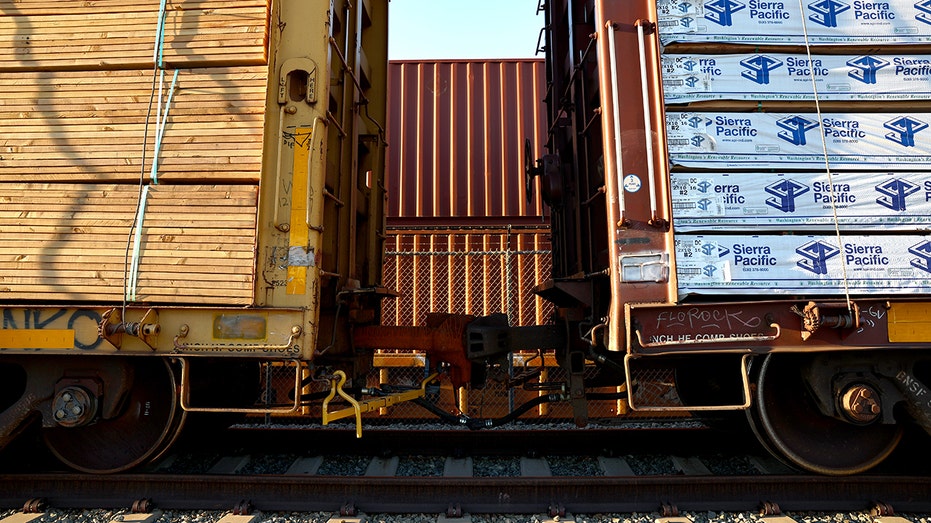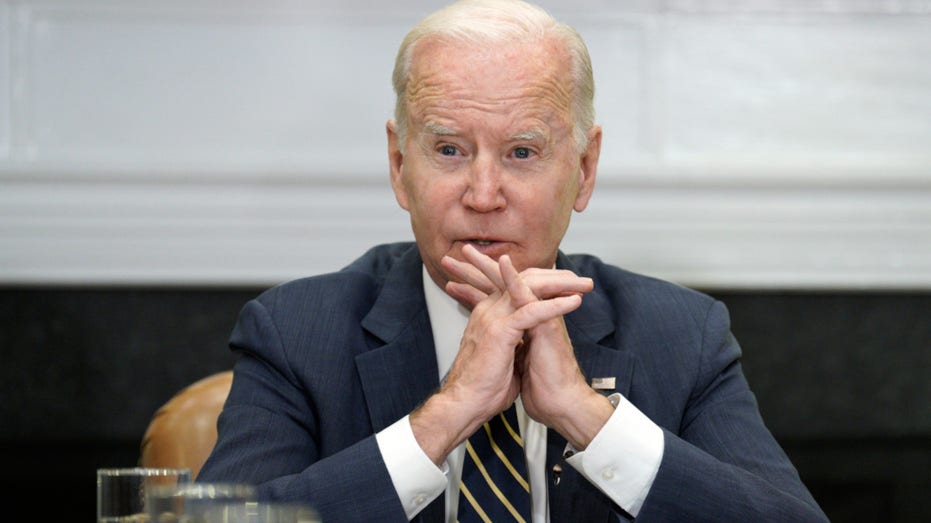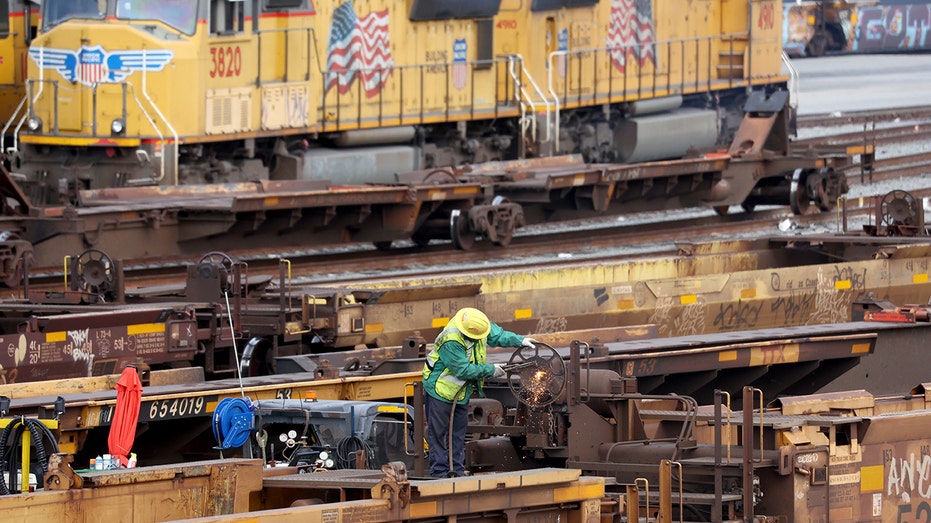Fertilizer, chemicals to stop moving Dec. 4 ahead of rail strike deadline
President Biden has called on Congress to intervene and prevent the rail worker strike
Biden: 'I am confident' that crippling nationwide rail strike will be avoided
President Biden met with congressional leaders Tuesday and said he is "confident" a rail strike can be avoided.
A potential railway strike will cut off the supply of fertilizer and key chemicals on Dec. 4 if President Biden and Congress do not act to avert it, a key labor group told Fox News on Tuesday.
Corey Rosenbusch, the president and CEO of The Fertilizer Institute, echoed Biden's call for Congress to avert the strike in a statement to FOX Business. Fertilizer is just one of the products that rely heavily on freight rail transportation in the U.S., and many industries could grind to a halt if workers and employers do not reach an agreement.
"Without Congressional action, rail networks will shut down on Dec. 9th, but our deadline is Sunday, December 4th which is when ammonia and other fertilizers and inputs will stop moving on the rails in preparation for a strike," Rosenbusch said. "These embargoes could hamper production and add additional uncertainty to an already tight global market."
"TFI appreciates the leadership shown by President Biden in emphatically supporting efforts to codify the Tentative Agreements reached by rail carriers and labor unions in September. With over half of all fertilizer moving by rail year-round, we absolutely cannot afford a rail strike, and Congress must act now to ensure that fertilizers and other critical materials and goods that U.S. consumers rely on every day get to where they are needed," he added.
RAIL UNION STRIKE WOULD CREATE A ‘CRIPPLING’ ECONOMY, INDUSTRY OFFICIAL WARNS

Freight rail cars loaded with lumber sit on tracks at the Port of Los Angeles on November 22, 2022 in Los Angeles, California. A national rail strike could occur as soon as December 5 after the nation’s largest freight rail union, SMART Transportatio (Photo by Mario Tama/Getty Images / Getty Images)
More than 400 business groups reminded congressional leaders in a letter Monday that ahead of the agreement reached two months ago, "the mere possibility of a rail service stoppage created significant disruptions to the timely delivery of goods and products." That is because of the logistics and planning that go into moving perishable goods or freight such as toxic chemicals that cannot be left sitting around on a railcar.
Mike Sommers, chief executive of the American Petroleum Institute (API), said that contingency plans for alternative ways of moving freight are limited in the instance of a rail stoppage, given that there is also an ongoing shortage of truck drivers in the country as things stand now with an already fragile supply chain.
"There's no contingency planning for the worst-case scenario of a shutdown,' added Retail Leaders Industry Association President Brian Dodge. "It's just absolutely catastrophic. Even the things that you can do around the edges – to try to move product sooner, or deplete the distribution centers in order to fulfill e-commerce orders, or restock stores – will only last for so long."

President Biden meets with congressional leaders in the Roosevelt Room of the White House in Washington, D.C., on Nov. 29, 2022. (Yuri Gripas/Abaca/Bloomberg via Getty Images) (Yuri Gripas/Abaca/Bloomberg via Getty Images / Getty Images)
Eight of 12 rail worker unions have approved the labor agreement put forward by Biden's administration, though four have rejected it.
WITH RAIL STRIKE LOOMING, WHITE HOUSE WON'T SAY HOW BIDEN IS 'DIRECTLY INVOLVED' IN NEGOTIATIONS
The deal includes a 24% compounded wage increase over a five-year period from 2020 through 2024 and five annual $1,000 lump-sum payments.
Workers know they have the upper hand in negotiations, however, as employers would have little choice but to acquiesce to their demands for more sick leave and other time off if the strike moves forward.

A rail employee works a Union Pacific Intermodal Terminal rail yard on November 21, 2022 in Los Angeles, California. (Photo by Mario Tama/Getty Images / Getty Images)
Biden pleaded with Congress to intervene and finalize the deal this week.
"A rail shutdown would devastate our economy. Without freight rail, many U.S. industries would shut down," Biden said. "Communities could lose access to chemicals necessary to ensure clean drinking water. Farms and ranches across the country could be unable to feed their livestock."
GET FOX BUSINESS ON THE GO BY CLICKING HERE
A strike could cost the U.S. economy up to $2 billion per day.
Reuters contributed to this report.




















